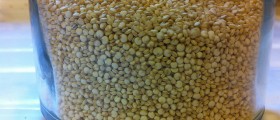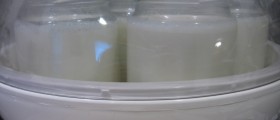
What is Sourdough Bread?
The sour dough has been used for making bread for thousands of years. Its purpose is to make bread airier and more digestible.Depending on the method of production, sourdough provides a mild or a strong aromatic flavor of bread.
Production of bread from sour dough has great potential because of its many advantages. Sour dough is obtained by fermentation of complex microflora composed of yeast and lactic acid which has an essential role in the formation characteristics of the bread. During its fermentation, lactic acid bacteria produce lactic acid and increase the acidity of the dough, which prevents the reproduction of unwanted micro-organisms and increases the durability of bread. In addition, the use of sourdough improves the technological characteristics, structure, nutritional value (by increasing the availability of minerals) and the aroma of the bread.
There is a belief that bread makes people fat and that if someone wants to lose extra pounds should not eat bread. However, given that the bread is source of numerous nutritional values and has a favorable effect on human health, it shouldn't be excluded from diet. It is necessary to find and use bread that best suit a particular person.
Benefits of Sourdough Bread
A study which included white, whole wheat, whole wheat with barley and sourdough white breads and their impact on people of different age and body weight was conducted.People who are overweight and between age of 50 and 60 have the best reaction on sourdough white bread and positive effects of it can be seen even after lunch. These positive results were decrease in sugar level in blood and increase in insulin level. Even after second meal (which was without sourdough bread) this situation remained the same.
It is believed that fermentation caused by the sourdough changes the properties of natural starch in the bread turning it into a healthier and better food.
Other types of bread made of whole grains of whole wheat did not show such good results as sourdough bread. Whole wheat bread has even caused a mild increase in blood sugar that was even retained after the second meal. Such results may come from the process of milling wheat and other grains, although above rule does not apply to all types of bread made from whole grains and whole wheat.
Bread is a good source of potassium, magnesium, iron, and zinc which absorption depends on the presence of phytic acid. However, during sourdough fermentation, acidification activates cereal phytases to hydrolyze phytate allowing absorption of minerals, especially magnesium.

















Your thoughts on this
Loading...